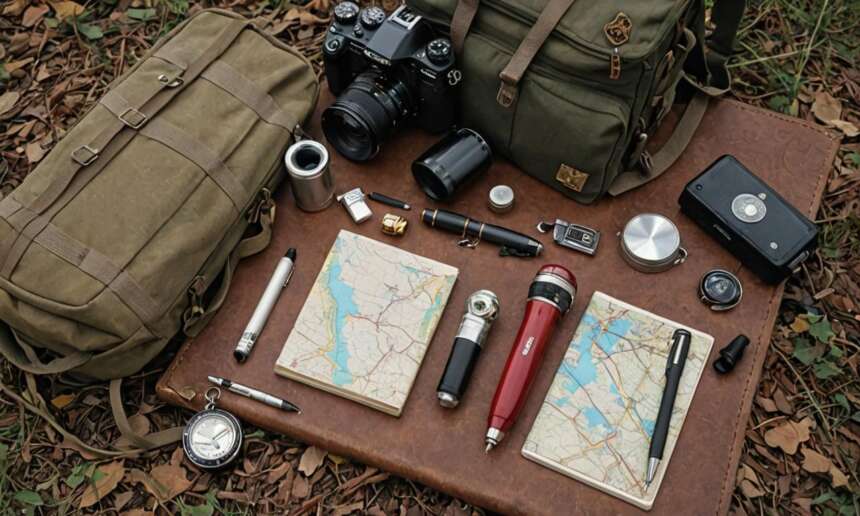If you’re passionate about travel, enjoy interacting with people from different cultures, and possess a wealth of knowledge about various destinations, becoming a tourist guide could be an exciting and fulfilling career path for you. Tourist guides play a vital role in enhancing the travel experience for visitors by providing them with insightful information, historical context, and local expertise.
Education and Training
While formal education requirements may vary depending on the location and type of guiding you wish to pursue, having a solid educational background can certainly be beneficial. Consider obtaining a degree or certification in tourism, hospitality, history, or a related field. Additionally, specialized training programs or courses focusing on tour guiding can provide you with essential skills and knowledge.
Develop Communication Skills
Effective communication is at the core of being a successful tourist guide. You’ll need to be able to convey information clearly and engagingly, adapting your communication style to suit different audiences. Practice public speaking, storytelling, and language skills to effectively connect with tourists from diverse backgrounds.
Gain Local Knowledge
One of the key requirements of being a tourist guide is having in-depth knowledge about the destinations you’ll be guiding visitors through. Familiarize yourself with the history, culture, landmarks, and attractions of your region. Explore hidden gems and off-the-beaten-path locations to offer unique experiences to your clients.
Obtain Licensing and Certification
Depending on the regulations in your area, you may need to obtain a license or certification to work as a tourist guide. Research the requirements set by local authorities or professional associations and ensure that you meet all necessary criteria. This may involve passing exams, undergoing training, or obtaining specific permits.
Gain Practical Experience
Before venturing into professional guiding, gaining practical experience in the tourism industry can be invaluable. Consider working part-time or volunteering as a tour assistant, intern, or apprentice with established tour companies or organizations. This hands-on experience will not only enhance your skills but also provide you with valuable insights into the industry.
Develop Customer Service Skills
As a tourist guide, you’ll be responsible for ensuring the satisfaction and enjoyment of your clients throughout their journey. Develop strong customer service skills by learning to anticipate and address the needs and preferences of travelers. Cultivate a friendly and approachable demeanor, and strive to create memorable experiences for your guests.
Network and Promote Yourself
Building a strong professional network within the tourism industry can open up opportunities for employment and collaboration. Attend industry events, join relevant associations or forums, and connect with other professionals in your field. Additionally, create an online presence through a professional website, social media platforms, and online directories to promote your services and attract potential clients.
Stay Updated and Flexible
The tourism industry is constantly evolving, with new trends, technologies, and destinations emerging regularly. Stay updated on industry news, changes in regulations, and developments in your area of expertise. Be flexible and adaptable, willing to adjust your itineraries and approach to meet the evolving needs and preferences of travelers.
Provide Excellent Service
Above all, strive to provide excellent service to your clients and exceed their expectations. Pay attention to details, anticipate challenges, and go the extra mile to ensure a memorable and enjoyable experience for everyone on your tour. Your dedication to quality and professionalism will not only lead to satisfied customers but also contribute to your success and reputation as a tourist guide.
Ensure Safety and Emergency Preparedness
Alongside providing excellent service, prioritizing the safety and well-being of your tourists is paramount. Familiarize yourself with safety protocols, emergency procedures, and first aid techniques. Being prepared for unforeseen circumstances can instill confidence in your clients and ensure smoother experiences during tours.
Handling Cultural Sensitivities
Cultural sensitivity is crucial when interacting with tourists from diverse backgrounds. Educate yourself about different cultures, customs, and traditions to avoid inadvertently causing offense or misunderstanding. Respect cultural nuances and be mindful of your language and behavior to foster positive interactions with all tourists.
Frequently Asked Questions
1. What are the typical working hours for a tourist guide?
2. How can I handle difficult situations or unruly tourists during a tour?
3. What are some effective strategies for managing large tour groups?
4. Are there any specialized tour guiding niches or areas of expertise that are in high demand?
5. What resources or tools can assist me in staying updated with industry trends and developments?
| Question | Answer |
|---|---|
| What are the typical working hours for a tourist guide? | Tourist guide working hours can vary widely depending on factors such as the type of tours offered, the season, and specific client requirements. Guides may work irregular hours, including early mornings, evenings, and weekends, to accommodate tour schedules. |
| How can I handle difficult situations or unruly tourists during a tour? | Dealing with challenging situations requires patience, diplomacy, and quick thinking. Techniques such as active listening, conflict resolution, and maintaining a calm demeanor can help diffuse tensions and resolve issues effectively. |
| What are some effective strategies for managing large tour groups? | When managing large groups, organization and communication are key. Utilize tools like group signage, headsets for audio tours, and designated meeting points to keep the group together and informed. Divide responsibilities among assistants or co-guides to ensure smooth logistics. |
| Are there any specialized tour guiding niches or areas of expertise that are in high demand? | Specialized niches such as adventure tourism, eco-tourism, culinary tours, and cultural immersions are increasingly popular among travelers. Developing expertise in niche areas can differentiate you as a guide and attract clients seeking unique and tailored experiences. |
| What resources or tools can assist me in staying updated with industry trends and developments? | Online platforms, industry publications, webinars, and networking events are valuable resources for staying informed about industry trends, best practices, and new destinations. Joining professional associations or forums can also provide access to educational resources and networking opportunities. |




